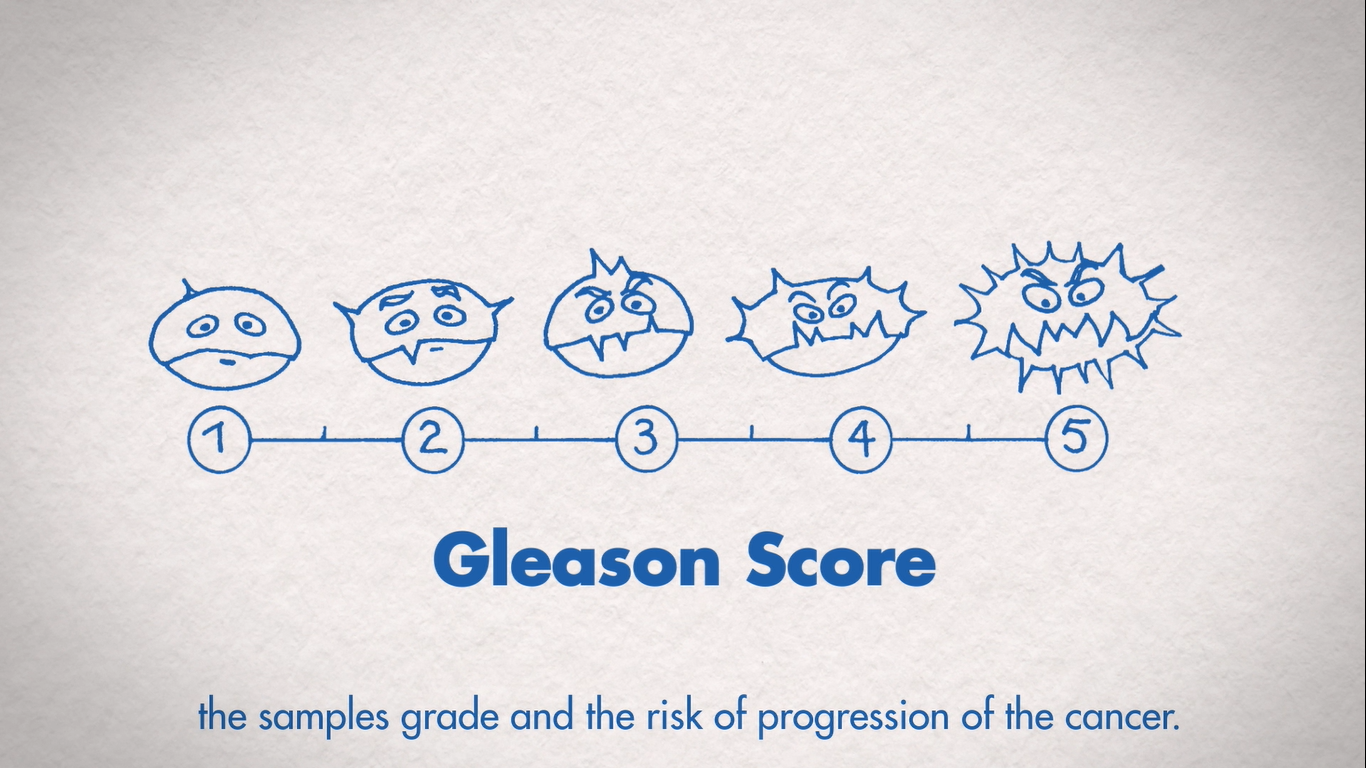Test Your Knowledge is a fun little quiz that covers five major topics related to prostate cancer: prevention, symptoms, screening, diagnosis, and treatment. You will, therefore, find below five questions testing your knowledge which relates to the fourth topic being diagnosis. You will find the answers at the bottom of the page. Have fun and learn more about prostate cancer!

Test your knowledge in 5 questions
Which of these statements is true
A. You can diagnose prostate cancer with a high PSA result
B. You can diagnose prostate cancer with an abnormal digital rectal examination
C. You can diagnose prostate cancer with an MRI
D. You can diagnose prostate cancer with a biopsy
E. None of the above
The urologist, who performs the biopsy, is also responsible for the analysis of the tissue removed
TRUE or FALSE
Prostate cancer is curable when detected early
TRUE or FALSE
Prostate cancer diagnosed in a young man is more serious than prostate cancer diagnosed in an older man.
TRUE or FALSE
X-rays and/or CT scans cause cancer
TRUE or FALSE
Answers
Which of these statements is true
Thank you for your participation! The answer is D!
Which of these statements is true
A. You can diagnose prostate cancer with a high PSA result
B. You can diagnose prostate cancer with an abnormal digital rectal examination
C. You can diagnose prostate cancer with an MRI
D. You can diagnose prostate cancer with a biopsy
E. None of the above
Even if they are very useful, the digital rectal examination and the different PSA dosages are not enough to diagnose prostate cancer. In the presence of abnormal results or in case of doubt, the doctor may request a transrectal ultrasound accompanied by a biopsy. This involves removing small pieces of prostate tissue so that a pathologist can examine them under a microscope and determine if the cancer is present or not. The biopsy usually allows an accurate diagnosis.
The urologist, who performs the biopsy, is also responsible for the analysis of the tissue removed.
Thank you for your participation. The answer is FALSE!
As mentioned in the previous answer, it is a pathologist who analyzes your samples. The pathologist is a doctor specializing in the study of human tissue. His work aims to better understand the disease. His main role is to make diagnoses based on microscopic analysis of the tissues removed (biopsy).
It is, therefore, he who checks whether the tissues are cancerous. He also specifies the grade of the latter (one of the important elements that determine the aggressiveness of cancer). Consequently, he makes an essential contribution since his work directs the attending physician towards the treatment that is best suited and most effective for the patient.
Prostate cancer is curable when detected early
Thanks for your participation. The answer is TRUE!
Yes. If cancer is discovered early enough, remains confined to the prostate, and is treated in a timely manner, it can usually be cured. The treatment will depend on the type of cancer (grade and Gleason score, stage and PSA level), the patient’s age, life expectancy and health status, and preferences.
Prostate cancer diagnosed in a young man is more serious than prostate cancer diagnosed in an older man
Thank you for your participation. The answer is FALSE!
It is wrong to think that prostate cancer in younger men is “worse” than that in older men (we are talking about all cancers in general here). Many people believe that cancer cells multiply faster in men in their 50s because their metabolism is faster than that of their elders. This statement is entirely false. If the cancer is of the same nature at the start, its evolution will be similar, regardless of age. And, in principle, the treatment should be the same. It’s life expectancy, medical history and personal choices that will make the difference.
X-rays and/or CT scans cause cancer
Thank you for your participation. The answer is FALSE!
According to Dr. Sailaja Kamaraju, assistant professor at the Wisconsin Faculty of Medicine … “CT scans are only performed on clinical indication; it is not a routine examination. However, the amount of radiation emitted during an X-ray or a CT scan is relatively low, the dose of radiation being lower than the annual dose to which we are exposed in our daily environment. Patients are poorly informed about the risks of computed tomography, and some of them, a very small minority, refuse to take this exam. They gain nothing since the risk corresponds to that of the average annual exposure in our normal environment. By refusing this examination, the patient loses the chance to receive a critical diagnosis that could save his life.”
Discover our new animated videos
Discover three new animated videos, each equally unique and original from one to the other. Be on the lookout!
Here is the second one – Diagnosis and Treatment
Take the time to visit each of our pages on this website, as well as our YouTube channel, in order to get familiar with the disease with our expert lectures, our section on available resources, the support that is offered to you.
Do you have any questions or concerns? Above all, do not hesitate. Contact us at 1 855 899-2873 to discuss with a nurse specializing in uro-oncology. It’s simple and free, like all our services.
Pages of our site that might interest you
Want to know more? Just click on one of the links below.
Recognize the signs and symptoms
Prostate-related diseases
PROCURE news that may interest you
Each week, we publish a blog article. Here are a few for you.
Prostate Cancer: Did You Say Zero Symptoms?
Top 5 Men’s Health Risks
PSA Test: Yes, No, Maybe?
Written by PROCURE. © All rights reserved – 2020



 ADDITIONAL RESOURCES
ADDITIONAL RESOURCES


